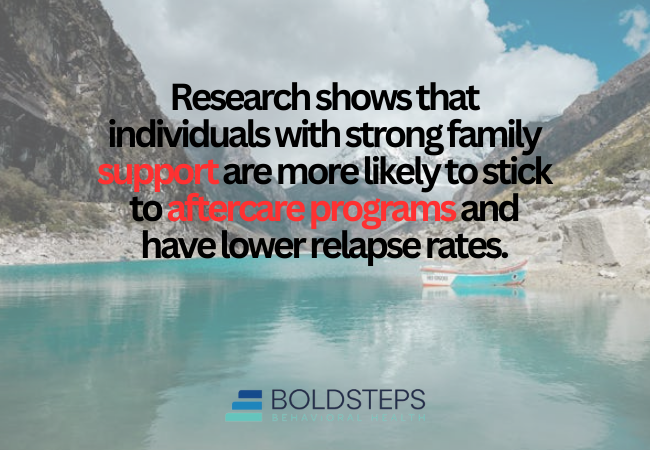When a loved one enters a drug rehabilitation center, it marks a significant step toward recovery. While it is a hopeful milestone, it can also be a challenging time for both the individual in treatment and their family or friends. Support from loved ones plays a crucial role in the recovery process, but knowing how to provide that support effectively can make all the difference.
At Bold Steps Behavioral Health, we recognize the importance of family and friends in the recovery journey. This guide offers detailed insights into how to support a loved one in a rehabilitation center for drugs, from understanding addiction to providing meaningful encouragement, while maintaining healthy boundaries.
Understand the Role of a Drug Rehabilitation Center
Before you can effectively support your loved one, it’s important to understand what happens in a drug rehabilitation center and how it aids recovery. These centers provide a structured environment where individuals can focus on overcoming addiction through evidence-based treatments and professional support.
Key Services Offered by Rehab Centers:
- Detox and Medical Supervision: Safe management of withdrawal symptoms during the detoxification process.
- Therapeutic Interventions: Includes individual therapy, group therapy, and family counseling to address the root causes of addiction.
- Substance-Specific Care: Tailored programs for Opiate Addiction Treatment, Alcohol Addiction Treatment, Benzodiazepine Treatment, and Stimulants Treatment.
- Levels of Care: Options such as Partial Hospitalization Programs (PHPs), Intensive Outpatient Programs (IOPs), and Outpatient Treatment provide flexibility to match individual needs.
Understanding these services helps you align your support with their treatment goals and challenges.
Educate Yourself About Addiction and Recovery
Addiction is a complex disease that affects the brain’s chemistry and an individual’s behavior. Educating yourself about addiction and the recovery process enables you to approach your loved one’s situation with empathy and understanding.
Key Points to Learn About Addiction:
- Addiction Is a Medical Condition: It is not a moral failing or a lack of willpower but a chronic disease that requires professional treatment.
- Relapse Is Part of Recovery: Recovery is rarely a straight line, and setbacks are common. Viewing relapse as part of the process can help you remain supportive.
- Triggers Are Real: Emotional stress, certain environments, or specific people can lead to cravings and relapse.
By learning about the challenges of addiction, you can better understand what your loved one is going through and provide informed, compassionate support.
Communicate with Care
Open and honest communication is vital when supporting someone in recovery, but it’s essential to approach conversations thoughtfully to avoid unintended harm.
Tips for Effective Communication:
- Listen Actively: Allow them to express their feelings without judgment or interruption.
- Offer Encouragement: Reassure them of your belief in their ability to recover and your commitment to supporting them.
- Avoid Blame or Criticism: Focus on their progress and efforts rather than past mistakes.
- Set Boundaries: Clearly communicate what you can and cannot do to support their recovery.
Your words can have a significant impact, so choosing them with care is essential.
Participate in Family Therapy
Many drug abuse treatment centers incorporate family therapy as a core component of their programs. These sessions help repair relationships, improve communication, and address underlying issues that may have contributed to addiction.
Benefits of Family Therapy:
- Healing Relationships: Addiction often strains relationships, and therapy provides a space to rebuild trust.
- Learning New Skills: Gain tools to communicate effectively and set healthy boundaries.
- Creating a Supportive Environment: Therapy helps families understand their role in the recovery process and how to provide meaningful support.
Active participation in family therapy shows your loved one that you’re invested in their recovery.
Respect Their Privacy and Independence
While it’s natural to want to stay involved in your loved one’s recovery, it’s important to respect their privacy and autonomy during treatment.
How to Respect Boundaries:
- Follow the Center’s Guidelines: Many rehab centers have specific rules about visitation and family involvement to ensure a distraction-free environment.
- Avoid Over-Involvement: Trust the professionals at the center to guide your loved one’s treatment.
- Allow Space for Growth: Encourage their independence by giving them the room to focus on their healing.
Respecting their boundaries demonstrates trust and supports their sense of self-reliance.
Celebrate Progress and Small Wins
Recovery is a journey of incremental progress, and celebrating achievements—no matter how small—can boost your loved one’s confidence and motivation.
Examples of Achievements to Celebrate:
- Completing a detox program.
- Reaching milestones in therapy, such as sharing in group sessions or developing new coping strategies.
- Successfully managing a trigger without relapsing.
Acknowledging their efforts reinforces the idea that they are capable of overcoming challenges and making positive changes.
Encourage Healthy Habits
Recovery isn’t just about abstaining from substances; it’s about building a healthy, fulfilling life. Encouraging your loved one to adopt healthy habits can complement their treatment and improve their overall well-being.
Ways to Promote Healthy Living:
- Physical Activity: Exercise can reduce stress and improve mood.
- Balanced Nutrition: Eating a nutritious diet supports physical and mental health.
- Mindfulness Practices: Techniques like meditation or yoga can help manage stress and improve emotional regulation.
Helping your loved one establish these habits creates a foundation for long-term recovery.
Focus on Your Own Well-Being
Supporting someone in recovery can be emotionally and physically taxing. Prioritizing your own well-being ensures you can provide the best possible support.
How to Take Care of Yourself:
- Join a Support Group: Programs like Al-Anon provide resources and a sense of community for families of individuals in recovery.
- Seek Counseling: Professional therapy can help you process your emotions and develop healthy coping strategies.
- Practice Self-Care: Make time for activities that rejuvenate you, whether it’s exercise, hobbies, or relaxation techniques.
By taking care of yourself, you set a positive example and ensure you have the strength to support your loved one.
Encourage Aftercare and Continued Support
Recovery doesn’t end when a person leaves the rehabilitation center for drugs. Aftercare is essential for maintaining sobriety and navigating the challenges of everyday life.
Examples of Aftercare Support:
- Therapy Sessions: Encourage them to continue attending individual or group therapy.
- Support Groups: Programs like Alcoholics Anonymous (AA) or Narcotics Anonymous (NA) provide ongoing peer support.
- Alumni Programs: Many of the best rehab centers, including Bold Steps Behavioral Health, offer alumni programs to keep clients connected to a supportive community.
Your encouragement can help them remain committed to their recovery journey.
Why Choose Bold Steps Behavioral Health?
At Bold Steps Behavioral Health, we provide comprehensive care for both clients and their families, recognizing the vital role that loved ones play in the recovery process.
What We Offer:
- Tailored Treatment Plans: Programs designed to meet the unique needs of each client.
- Family Involvement: Family therapy sessions and educational resources to strengthen relationships.
- Substance-Specific Care: Comprehensive programs for various substances, including alcohol, opioids, benzodiazepines, and stimulants.
- Holistic Approaches: Incorporating mindfulness, yoga, and nutrition into recovery.
- Relapse Prevention: Aftercare plans and alumni programs to support long-term success.
Take the Bold Step Toward Recovery
Supporting a loved one in a drug rehabilitation center is an act of love, patience, and commitment. By educating yourself, respecting their journey, and encouraging healthy habits, you can be a source of strength during their recovery process.
Contact Bold Steps Behavioral Health today at (603) 915-4223 to learn more about our programs and how we can support your family’s recovery journey. Together, we can take the bold step toward healing and hope.
Frequently Asked Questions (FAQs)
How can I support a loved one in a drug rehabilitation center?
You can support your loved one by educating yourself about addiction, communicating openly, participating in family therapy, respecting their privacy, and celebrating their progress.
Why is family involvement important in addiction recovery?
Family involvement helps rebuild trust, improve communication, and create a supportive environment for your loved one’s recovery journey.
Should I attend family therapy sessions at the rehab center?
Yes, family therapy sessions are an essential part of recovery, providing a safe space to address relationship challenges and learn how to support your loved one effectively.
How can I communicate with my loved one during rehab?
Focus on active listening, offering encouragement, avoiding judgment, and setting healthy boundaries. Clear and compassionate communication is key.
What should I know about addiction to support my loved one?
Understand that addiction is a chronic medical condition, not a moral failing, and that recovery is a journey with potential setbacks. Educating yourself helps you provide informed support.
How can I avoid enabling behaviors while supporting my loved one?
Set boundaries and avoid actions that may unintentionally support their addiction, such as providing money or shielding them from the consequences of their actions.
What role does aftercare play in recovery?
Aftercare, such as therapy, support groups, and alumni programs, helps individuals maintain sobriety and provides continued guidance after completing treatment.
How can I take care of myself while supporting my loved one?
Prioritize self-care, seek counseling, or join support groups like Al-Anon to process your emotions and gain strength for your role in their recovery.



